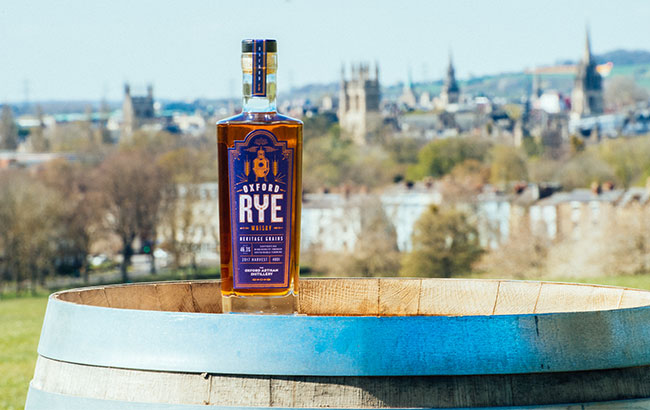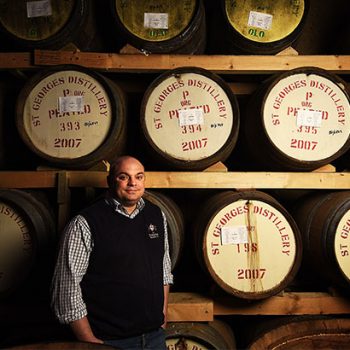Producers seek legal definition for English whisky
Sixteen distillers have joined forces to propose a geographical indication (GI) for English whisky to the UK government.

The English Whisky Guild (EWG) submitted a GI application to the UK Department for Environment, Food & Rural Affairs (Defra) on 14 February, with the goal of establishing a legal definition for English whisky.
“One of the main reasons behind it was to define English whisky, and in doing so, protect those in the industry from cheap imports being relabelled as English whisky,” said Andrew Nelstrop, chair of the EWG and managing director of Norfolk-based The English Whisky Company.

“The GI is also designed to reinforce the consumers’ trust and belief in the category, which – given the work and dedication of the current English whisky producers – is a trust and belief that is well deserved.”
The modern English whisky category is still relatively young. When Nelstrop’s company opened the doors to its St George’s Distillery in 2006, it became the country’s first dedicated whisky-making facility in more than 100 years. However, the category has seen rapid growth over the past decade, with producers including London-based Bimber Distillery, The Oxford Artisan Distillery and, most recently, White Peak Distillery in the Peak District joining the ranks.
One year ago, to unite the increasing number of producers in this burgeoning category, the EWG was officially formed.
The organisation is open to all English whisky distillers, bottlers and associated businesses. It currently has 16 member companies, which Nelstrop said are “all but two of those that currently have mature (or approaching mature) whisky in their portfolios”. He noted that there are 16 more producers who are in the early stages of planning or production, and that the EWG hopes to meet with those distillers in the future.
Tagore Ramoutar, non-executive director of The Oxford Artisan Distillery, led the development of the GI proposal through a “collaborative process” with EWG’s members. “We reviewed the existing GIs and definitions used by other countries and the processes and standards used by our distilleries to create a draft GI that was then reviewed and shared over a 12-month period to refine it to reflect a standard that attempts to create a modern best-practice GI,” Ramoutar explained.
“Over the period, we informally consulted with Defra and other interested parties to ensure that we understood both the process and the nuances of the proposed standard.”
According to Nelstrop, the GI “is a long way from being signed off by Defra”, and he expects edits to the proposed definition will be implemented as the application is processed.
The Spirits Business has requested further details regarding the specifications outlined in the proposal.
Nelstrop continued: “The hope is to see an end to foreign whiskies being marketed as English, in doing so, it is then in the hands of us, as the producers of our glorious whiskies to ensure the quality of our products; by introducing the GI we negate the ability for unscrupulous bottlers to undo all the hard work done by the national industry as a whole in creating such a wonderful and diverse portfolio of truly world-class whiskies over the last 15 years.”
The government revealed its new GI schemes in January 2021, following the UK’s exit from the European Union.
Related news
Golf drives Glen Moray push in UK travel retail
